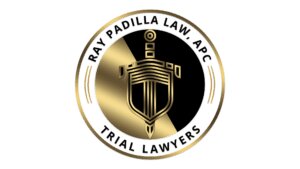Best Car Accident Lawyers in California
Share your needs with us, get contacted by law firms.
Free. Takes 2 min.
Or refine your search by selecting a city:
List of the best lawyers in California, United States
About Car Accident Law in California, United States
Car accident law in California is governed by a mix of state statutes, regulations, and case law that determine how liability and compensation are handled after a motor vehicle accident. California operates under a fault-based system, meaning those responsible for causing accidents are held liable for resulting damages. Victims of car accidents can seek compensation through insurance claims or civil lawsuits, often for medical bills, lost wages, property damage, and pain and suffering. Understanding your rights and obligations after a car accident in California is crucial to protecting your interests and ensuring fair compensation.
Why You May Need a Lawyer
Not every car accident requires the help of an attorney, but there are several situations where legal assistance is beneficial. You may need a car accident lawyer if:
- You suffered significant injuries or long-term disability from the accident.
- Liability is disputed or multiple parties are involved.
- The insurance company denies your claim, offers a low settlement, or delays payment.
- The other driver was uninsured or underinsured.
- You face legal action or need to defend yourself in court.
- There are complexities such as commercial vehicles, government vehicles, or pedestrian involvement.
Lawyers help gather evidence, negotiate with insurers, ensure your claim follows deadlines and requirements, and represent you in court if necessary.
Local Laws Overview
There are several key aspects of California law to keep in mind after a car accident:
- California follows a pure comparative negligence rule, allowing you to recover damages even if you are partially at fault, though your recovery may be reduced by your percent of fault.
- Drivers are legally required to stop, provide information, and assist after an accident causing property damage or injury.
- You must report collisions resulting in injury or death to local police or highway patrol within 24 hours and to the Department of Motor Vehicles within 10 days if the accident involved injury, death, or property damage exceeding a certain amount.
- The statute of limitations for most personal injury claims in California is two years from the date of the accident. Property damage claims generally have a three-year limit.
- California law requires all drivers to carry minimum liability insurance coverage for bodily injury and property damage.
Being familiar with these laws helps protect your rights and ensures compliance with legal duties after a car accident.
Frequently Asked Questions
What should I do immediately after a car accident in California?
Check for injuries, call 911 if needed, move to a safe area if possible, exchange information with the other driver, document the scene, and report the accident as required by law. Even if injuries seem minor, seek medical attention promptly.
Do I need to call the police after a minor accident?
California law requires you to contact law enforcement if there are injuries or deaths. For minor property damage only, it is still advisable to have an official police report for insurance purposes.
What if the other driver is uninsured?
If the other driver is uninsured, you may make a claim under your own uninsured or underinsured motorist coverage if you have it. You can also sue the at-fault driver directly, though recovery may be challenging if they have limited assets.
How is fault determined in California car accidents?
Fault is determined by reviewing evidence such as police reports, witness statements, physical damage, and accident reconstruction. California uses comparative negligence, so more than one driver can share fault.
What damages can I recover after a car accident?
Possible damages include medical expenses, rehabilitation costs, lost wages, property damage, and compensation for pain and suffering. The exact types and amounts depend on the specifics of your case.
How long do I have to file a car accident claim in California?
You generally have two years from the date of the accident to file a personal injury lawsuit and three years for property damage. Filing late can bar you from recovering compensation.
Will my insurance rates go up after an accident?
Your insurance rates may increase if you are found at fault. Rate increases depend on your insurer, policy, driving history, and the details of the accident.
What happens if I am partially at fault?
California law allows you to recover damages even if you are partly at fault, but your compensation will be reduced by your percentage of fault.
Can I still recover if I was not wearing a seatbelt?
You may still recover damages, but your failure to wear a seatbelt can be considered in determining comparative fault and may reduce your compensation.
Should I accept the insurance settlement offer?
Insurance companies often make initial offers that may not reflect the full value of your claim. Consult an attorney before accepting any settlement to ensure your rights and interests are protected.
Additional Resources
If you need more information or assistance regarding car accidents in California, consider the following resources:
- California Department of Motor Vehicles (DMV)
- California Highway Patrol
- California Courts Self-Help Center
- State Bar of California Lawyer Referral Services
- Local city or county bar associations
- National Highway Traffic Safety Administration (NHTSA)
These organizations provide educational materials, forms, and assistance for motorists and accident victims.
Next Steps
If you or a loved one has been involved in a car accident in California and need legal help, consider the following steps:
- Gather and organize all documents related to the accident, including photographs, police reports, medical records, and insurance correspondence.
- Consult with an experienced car accident attorney to evaluate your case and explain your options.
- Contact your insurance company and report the accident as required by your policy and state law.
- Do not admit fault or sign any documents without understanding your rights.
- Follow up on medical care and keep detailed records of your expenses and injuries.
Taking prompt and informed action maximizes your chances of a favorable outcome and ensures you receive the compensation you deserve.
Lawzana helps you find the best lawyers and law firms in California through a curated and pre-screened list of qualified legal professionals. Our platform offers rankings and detailed profiles of attorneys and law firms, allowing you to compare based on practice areas, including Car Accident, experience, and client feedback.
Each profile includes a description of the firm's areas of practice, client reviews, team members and partners, year of establishment, spoken languages, office locations, contact information, social media presence, and any published articles or resources. Most firms on our platform speak English and are experienced in both local and international legal matters.
Get a quote from top-rated law firms in California, United States — quickly, securely, and without unnecessary hassle.
Disclaimer:
The information provided on this page is for general informational purposes only and does not constitute legal advice. While we strive to ensure the accuracy and relevance of the content, legal information may change over time, and interpretations of the law can vary. You should always consult with a qualified legal professional for advice specific to your situation.
We disclaim all liability for actions taken or not taken based on the content of this page. If you believe any information is incorrect or outdated, please contact us, and we will review and update it where appropriate.
Browse car accident law firms by city in California
Refine your search by selecting a city.














